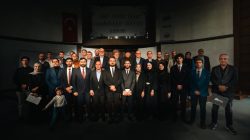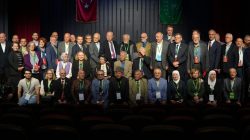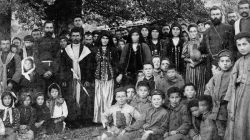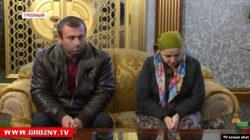
Nalchik/Agency Caucasus – The UNICEF, an agency of the United Nations (UN) established in 1946 to help governments to improve the health and education of children and their mothers, has been active in the Caucasus since 2005. Through the Russian leg of the World Bank, it brought together young people from different parts of the region to celebrate the International Day for Tolerance in Kabardino-Balkaria on November 16.
One Ingush child was critical of the adults because troubles of the adult world barred him from meeting his Ossetian friends on a regular basis.
The Kabarda-Balkar Ministry of Education joined up with the country’s State Committee for Youth and Civilian Organization Affairs to hold meetings on November 15 and 16 in some of the schools in Nalchik, the capital city of Kabardino-Balkaria, and in the touristy district of Dolinsk to celebrate tolerance as a concept that makes peace possible.
The meetings attracted an audience of up to 400 from Kabardino-Balkaria, Ingushetiya, Chechnya, Dagestan, North Ossetia, Karachay-Cherkessia and Stavropol. Almost half the audience was composed of children. The whole series of the programme was aimed at getting the young people actively participate in civilian attempts to secure peace in North Caucasus.
The roundtable meeting in the School Nr 10 attracted an audience of 30 UNICEF members and 50 students. Tsiala Kamanova, a North Ossetian trainer, headed the meeting, stressing the need for maintained tolerance and helping the participants to look for an answer to what role the young people could play in preserving peace.
A little Ingush girl was amongst the participants. She said that she made friends with an Ossetian, Madina, while the two joined the UNICEF summer camp. "I would very much want Madina to be my guest, but I know that she would not, because our elders have created barriers to us having regular meetings and becoming friends," she complained.
The young people were assigned to propagate the ideas of peace and tolerance both in schools and on the Internet.
"While I was a little kid, we had a rather different world from our own," said Bertrand Bainvel, the UNICEF Representative in Russia. "All the nations used to live, generally, within their own boundaries. The entire citizens of the country used to make up one whole nation. But the world now changes, the people move or are being forced to move from one place to another. Our generation was not ready to live in the world of so different nations. We admit our wrong and therefore I am glad that you are making an effort to learn what tolerance means. It is much more interesting to live in a multi-shaped world, because the lives of the people gain further value that way."
ÖZ/FT
[ssba]




